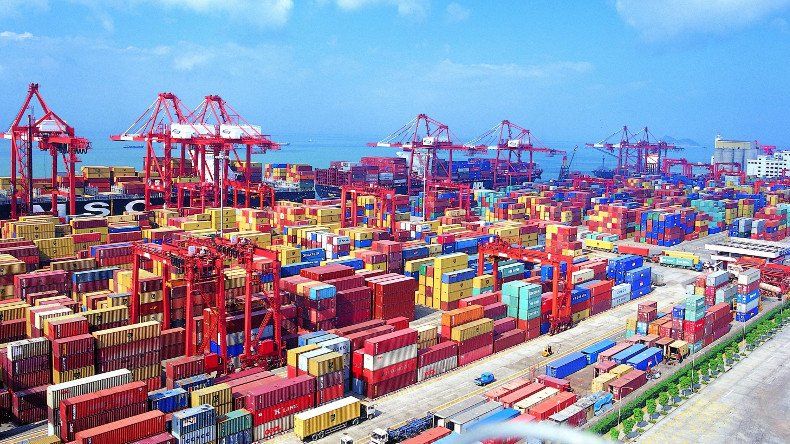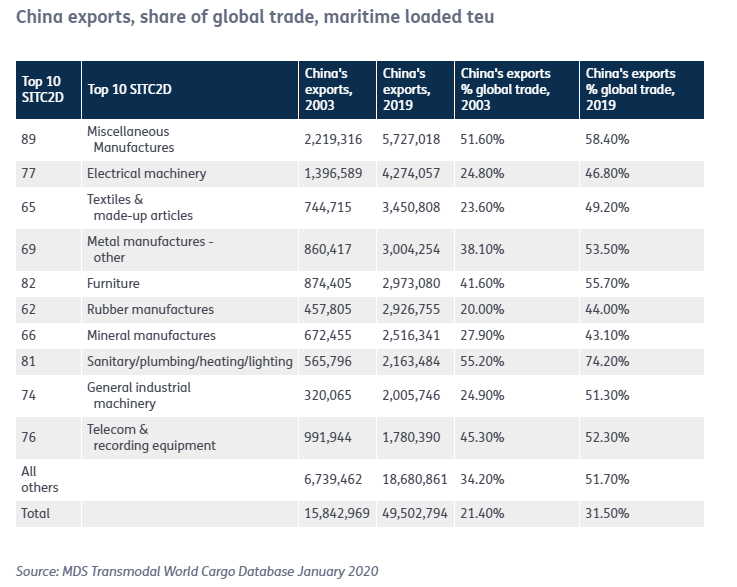
Will coronavirus infect the global economy?
China’s percentage of world exports has increased by half since the last major virus outbreak in 2003. But the coronavirus outbreak could have long-term impacts on its manufacturing sector
China’s rise in importance in the global economy means that the impact from coronavirus could be felt worldwide

CHINA IS RESPONSIBLE FOR A THIRD OF GLOBAL EXPORTS
GLOBALISATION allows corporations to decide comfortably where to locate resources as they can move quickly from one place to another in response to a change in the geopolitical environment.
How quickly, though, can a company decide to relocate its factories when the cause of its anxiety in remaining where its production is based is called ‘2019-nCoV’?
“Not quickly enough”, some would say as more and more companies based in China are now forced to put their production on hold.
The virus has spread fast around the world since the first cases were detected in Wuhan, central China, last December.
As of February 3, at least 360 people have died and more than 17,000 people have been infected; the World Health Organisation declared the outbreak a public health emergency of international concern. The virus’s toll rises at a fast rate and so the associated fear.
Wuhan, a city with 11m residents, remains shut from the rest of the world and it will be forced to extend its Lunar New Year holiday for days (if not weeks).
Wuhan is not the only Chinese city to have been locked down. Shanghai, the world number one container port, with more than 42m teu moved in 2018 and attracting more than 260 maritime services in 2019, is also in the list.
Trying to estimate the possible impacts of the coronavirus on the global economy is far from easy. Perhaps the last health crisis that affected China, SARS, could offer a guide, but that was 17 years ago and 17 years is a long time when one looks at China’s economic cycle.
Since 2003, China’s share of global GDP has increased from 4% to over 16%, based on International Monetary Fund data, and it is the biggest exporter of consumer goods as described in the following table.

The role that China plays in the supply chain worldwide is so central that companies around the world are now concerned as to what could happen should this health emergency persist.
The Lunar New Year usually presents as a shopping goldmine and it is a key period for economic growth in China.
With the virus emerging over the festive period, the negative impacts on GDP for the first quarter of 2020 will be inevitable as the recreational spending and impulse purchases over the holiday season have been severely curtailed.
Furthermore, as time passes, the room for manufacturers to catch up with their orders is also shrinking, impacting the supply chain around the world, for example, companies preparing their stocks for the reopening of schools will be looking at the events with apprehension. As for the impulse purchases, once a fashion trend has passed, the opportunity is gone.
As a vaccine could be months or years away, one could expect that the speed of the epidemic could tempt businesses to move manufacturing to the US or to Mexico.
Nobody knows for sure at this stage what is the best move: “wait and see” or “to go”. What seems to be clear, however, is that the coronavirus is adding another level of complication in a global economy that was only just starting to breathe again after the recent relief over the lessening trade tensions.
First published on Lloyd's List website February 2020
